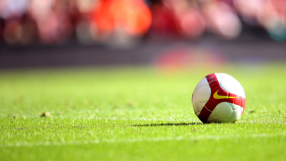Football's financial bubble set to burst, says expert
Football’s financial bubble is about to burst, according to a leading finance expert. Tom Cannon, Professor of Strategic Development at the University of Liverpool, predicts the gravy train will be derailed by the recession – despite the preponderance of wealth on display in the Football Rich List, published today in FourFourTwo magazine. “There’s a lagged effect in football. The television deal, the season tickets – those are already in place, but then you get the problem of renewals, not just on season tickets but on executive lounges,” said Professor Cannon, an Everton fan who is also CEO of Ideopolis International Ltd. “Season ticket numbers will probably be down by about 10 percent, but renewals will be down by at least 15 or 20 percent. That’s where the problems will be as you go down the divisions.” While economies across the globe have been wrecked by recession, football continues to grab headlines with shows of financial strength. Those on the Football Rich List are worth a total of £61 billion and include 11 billionaires, many from abroad. However, there are 64 Britons on the list – including three well-heeled WAGs. The top spot is now taken by new Manchester City owner Sheikh Mansour bin Zayed al-Nahyan, one of 25 new entries on the list. The sheikh – whose vast wealth is expected to fund a transfer buying spree for manager Mark Hughes in this month's transfer window – is estimated to be worth £15 billion.

£3BN LOST IN RECESSION
That fortune makes the sheikh worth more than twice as much as Roman Abramovich, who has topped all five previous Football Rich Lists. The Chelsea owner is said to have lost more than £3 billion in the recession.
At £7 billion Abramovich is now third in the Rich List, with many sources indicating that Chelsea manager Luiz Felipe Scolari will have little or no transfer money to spend this month. Some respected commentators are even saying that Abramovich may be considering selling Chelsea, on whom he has spent around £578m in the form of an interest-free loan.
Despite the Russian's input, Chelsea's overall debt is £736m and the club are still not breaking even. Champions Manchester United are a similar amount in the red, with the Glazer family having borrowed heavily to buy all the shares in the club.
GOVERNMENT BAILOUT
And Liverpool owners Tom Hicks and George Gillett were recently given an extra six months to repay the £350m they borrowed from US investment bank Wachovia and the Royal Bank of Scotland – which itself was only saved from collapse in October by Government bailout.
It's not just the big clubs. The latest Premier League report by accountants Deloitte revealed that total borrowings had rocketed from £674 million in 2005 to £1.6 billion in 2006, leaving clubs exposed to the risks of the debt-ridden markets.
Deloitte's report raised special concern that the overall level of gearing – a financial term for the level of debt in companies compared to shareholders' funds – had increased to 220 percent at the end of the 2005-06 season.
In October, FA chairman Lord Triesman went further, claiming top-flight clubs are “at high risk levels” with £3 billion of debt, which brings about “tangible dangers”.
“The debt mountains are owned – and therefore the clubs are owned – by either financial institutions, some of which are in terrible health, or very rich owners who are not bound to stay, or not very rich owners who are also not bound to stay,” said Triesman.
UNSUSTAINABLE DEBT
UEFA president Michel Platini also weighed in
The best features, fun and footballing quizzes, straight to your inbox every week.
Gary Parkinson is a freelance writer, editor, trainer, muso, singer, actor and coach. He spent 14 years at FourFourTwo as the Global Digital Editor and continues to regularly contribute to the magazine and website, including major features on Euro 96, Subbuteo, Robert Maxwell and the inside story of Liverpool's 1990 title win. He is also a Bolton Wanderers fan.
